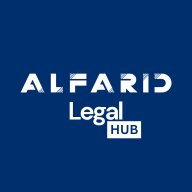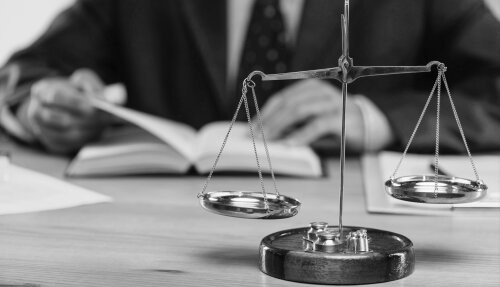Best Sustainable Finance Lawyers in Heliopolis
Share your needs with us, get contacted by law firms.
Free. Takes 2 min.
List of the best lawyers in Heliopolis, Egypt
About Sustainable Finance Law in Heliopolis, Egypt:
Sustainable finance means designing, financing and managing economic activities so they deliver environmental and social benefits alongside financial returns. In Heliopolis - a district of Greater Cairo - sustainable finance plays out in local real estate projects, energy upgrades, waste management initiatives and smaller-scale renewable energy installations on commercial and residential buildings.
At the legal level, sustainable finance in Heliopolis is shaped mainly by national policies and sectoral regulation - for example environmental protection requirements, energy and renewable energy frameworks, banking and capital market rules and investment incentives. Local authorities and municipal approvals also matter for construction, land use and on-site installations. A person or company working on a green project in Heliopolis will need to coordinate national legal requirements with local permitting and practical constraints on the ground.
Why You May Need a Lawyer:
Sustainable finance projects often bring together technical, financial, regulatory and contractual complexity. You may need a lawyer when you face any of the following situations:
- Project structuring and financing - negotiating loan documents, security packages, shareholder agreements and lender conditions for a solar, energy-efficiency or green building project.
- Regulatory compliance - interpreting environmental law, determining whether an environmental impact assessment is required, or complying with emission and waste rules.
- Permits and land use - securing municipal building permits, changing land use, or resolving title and zoning issues specific to Heliopolis or Cairo Governorate.
- Capital markets and disclosures - preparing an offering for a green bond or sustainability-linked instrument, or meeting disclosure expectations from regulators and investors.
- Procurement and public-private partnerships - bidding for or negotiating a PPP or concession involving sustainable infrastructure.
- Contract drafting and procurement - ensuring contracts with contractors and operators include sustainability performance standards, payment triggers and liquidated damages for non-performance.
- Due diligence and risk allocation - conducting legal due diligence for investors or buyers and allocating environmental and permitting risk in sale agreements.
- Disputes and enforcement - representing clients before administrative agencies, courts or arbitration panels over compliance, permit refusals or contract breaches.
Local Laws Overview:
Below are the key legal and regulatory areas that commonly affect sustainable finance in Heliopolis. Each project will be different - a lawyer can help identify which rules apply to your specific situation.
- Environmental rules and EIAs - Environmental protection legislation and its executive regulations require environmental assessments, pollution controls and licensing for many projects. The Egyptian Environmental Affairs Agency (EEAA) administers many of these requirements and supervises the environmental approval process.
- Energy and renewable energy frameworks - National energy policy and sector regulations govern grid connections, licensing and feed-in arrangements for renewable energy. Projects that export electricity or connect to the distribution network need to follow the rules set by the Ministry of Electricity and Renewable Energy and relevant distribution operators.
- Banking and capital markets oversight - The Central Bank of Egypt supervises banks and has issued guidance that encourages sustainability practices for financial institutions. The Financial Regulatory Authority and the Egyptian Exchange regulate disclosures, offerings and the design of debt instruments including green and sustainability-linked bonds.
- Investment, tax and incentive rules - Investment promotion and tax incentive programs can affect project economics. The General Authority for Investment and Free Zones and relevant tax authorities administer incentives, customs treatment and exemptions that may be available for certain green investments.
- Land, zoning and building codes - Municipal and governorate-level regulations control building permits, construction standards and land use in Heliopolis. These rules determine what upgrades or installations are permitted on existing buildings and what approvals are required for new construction.
- International standards and lender requirements - Many financings follow international standards such as IFC Performance Standards, Equator Principles or donor conditions. These impose additional due-diligence, reporting and social safeguards beyond local law.
- Contract and commercial law - General contract law, obligations rules and company law govern how project documents are drafted, how parties allocate risk and how disputes are resolved.
Frequently Asked Questions:
What exactly is sustainable finance and how is it different from regular finance?
Sustainable finance integrates environmental, social and governance considerations into financial decisions. Unlike traditional finance that focuses primarily on risk and return, sustainable finance assesses environmental impacts, social outcomes and governance practices alongside financial performance. It can include green loans, green bonds, sustainability-linked loans and investment screening for ESG factors.
Do I need a lawyer to apply for a building permit or to install solar on a Heliopolis building?
Not always, but a lawyer is helpful if the project raises legal questions - for example unclear property title, shared ownership, condominium rules, heritage restrictions, or complex municipal requirements. For straightforward rooftop installations with clear ownership and standard grid connections, an engineer and the distribution company are often sufficient. When in doubt, consult a lawyer to avoid costly mistakes.
When is an environmental impact assessment required?
An EIA is typically required for projects with potential significant environmental impact - large construction, industrial installations, waste facilities, and certain energy projects. The threshold and process are defined by environmental regulations and administered by the EEAA. A lawyer can help determine whether your project triggers an EIA requirement and guide you through the approvals process.
How do green bonds or sustainability-linked bonds work in Egypt?
Green bonds raise capital for projects with environmental benefits, with proceeds ring-fenced for eligible uses. Sustainability-linked bonds tie pricing or metrics to sustainability performance targets. Issuance must comply with securities regulations and exchange rules if listed. Legal advice is important for structuring, preparing offering documents and meeting disclosure expectations of regulators and investors.
What regulatory bodies should I expect to deal with for sustainable projects in Heliopolis?
Common regulators include the Egyptian Environmental Affairs Agency for environmental approvals, the Ministry of Electricity and Renewable Energy for energy projects, the Central Bank of Egypt for bank financing standards, the Financial Regulatory Authority for capital markets, and Cairo Governorate or Heliopolis municipal offices for building permits and zoning.
Are there tax incentives or government programs that support green projects?
Egypt offers targeted incentives and investment promotion measures that can benefit renewable energy and environmentally friendly projects. The availability and conditions vary by project type, size and location. Legal and tax counsel can identify applicable incentives and help structure transactions to qualify for benefits.
What should investors look for when doing due diligence on a green project?
Key due-diligence items include clear title and land rights, valid permits and authorizations, environmental compliance and past violations, grid connection agreements, off-take or revenue contracts, contractor qualifications and warranties, and compliance with lender or international standards. A lawyer will coordinate legal diligence with technical and environmental experts.
How do I prove that a project is genuinely green or sustainable?
Proof typically combines legal documentation, technical certifications and reporting. This can include environmental permits, energy performance certificates, third-party verification against recognized standards, clear use-of-proceeds tracking for bond financings, and regular sustainability reporting. Independent verification by auditors or certifiers strengthens credibility with investors.
What are common legal risks specific to sustainable finance projects?
Common risks include permit delays or refusals, environmental liabilities from legacy contamination, grid connection or dispatch restrictions, contractor performance failures, changes in subsidy or tariff regimes, and reputational risk if claimed sustainability benefits are not delivered. Contracts and insurance can mitigate many risks, but legal counsel is needed to allocate responsibilities effectively.
How do I find the right lawyer in Heliopolis for sustainable finance matters?
Look for lawyers or law firms with experience in environmental law, energy and infrastructure, banking and capital markets, and project finance. Ask for examples of similar transactions, client references and whether they work with technical and environmental consultants. Confirm registration with the Egyptian Bar Association and clear fees and engagement terms before starting work.
Additional Resources:
Useful bodies and organizations to consult when pursuing sustainable finance projects in Heliopolis include national regulators and institutions and technical partners:
- Egyptian Environmental Affairs Agency - for environmental approvals and EIA guidance.
- Ministry of Electricity and Renewable Energy and the New and Renewable Energy Authority - for renewable energy policy and grid connection rules.
- Central Bank of Egypt - for banking guidance and supervisory expectations on sustainability.
- Financial Regulatory Authority and the Egyptian Exchange - for capital markets rules and disclosure requirements.
- General Authority for Investment and Free Zones - for investment incentives and registration assistance.
- Cairo Governorate and the Heliopolis district office - for local permits, building approvals and zoning information.
- International institutions and standards bodies - such as the International Finance Corporation and multilateral development banks - for guidance on international safeguards and financing best practices.
- Professional advisors - licensed environmental consultants, qualified engineers, and specialized law firms with project finance and environmental expertise.
Next Steps:
If you need legal assistance for a sustainable finance matter in Heliopolis, consider the following practical steps:
- Define your objective - know whether you need financing, permits, investor due diligence, or contracting support.
- Gather documents - land titles, previous permits, technical studies, contracts and any correspondence with regulators or utilities.
- Choose the right adviser - seek a lawyer or firm with experience in environmental, energy and finance work. Ask for case studies and references.
- Prepare for an initial consultation - present the project facts, timelines and risk issues so the lawyer can advise on scope, fees and next steps.
- Agree terms in writing - use a clear engagement letter that sets fees, deliverables, confidentiality and conflict checks.
- Coordinate technical and environmental experts - lawyers work best when paired with engineers and environmental consultants for full compliance and bankable documentation.
- Plan for permits and timelines - regulatory approvals and grid connections may take months; build this into your project schedule and financing plan.
- Keep records and plan for reporting - set up systems to track use of proceeds, sustainability metrics and regulatory reporting obligations.
Taking these steps early reduces legal and commercial risk and improves your chance of delivering a successful sustainable finance project in Heliopolis.
Lawzana helps you find the best lawyers and law firms in Heliopolis through a curated and pre-screened list of qualified legal professionals. Our platform offers rankings and detailed profiles of attorneys and law firms, allowing you to compare based on practice areas, including Sustainable Finance, experience, and client feedback.
Each profile includes a description of the firm's areas of practice, client reviews, team members and partners, year of establishment, spoken languages, office locations, contact information, social media presence, and any published articles or resources. Most firms on our platform speak English and are experienced in both local and international legal matters.
Get a quote from top-rated law firms in Heliopolis, Egypt — quickly, securely, and without unnecessary hassle.
Disclaimer:
The information provided on this page is for general informational purposes only and does not constitute legal advice. While we strive to ensure the accuracy and relevance of the content, legal information may change over time, and interpretations of the law can vary. You should always consult with a qualified legal professional for advice specific to your situation.
We disclaim all liability for actions taken or not taken based on the content of this page. If you believe any information is incorrect or outdated, please contact us, and we will review and update it where appropriate.










